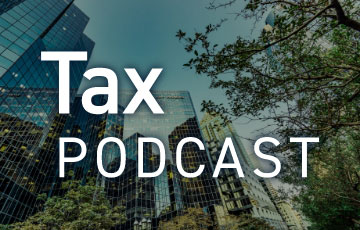As a result of COVID-19, the IRS closed several service centers during the first half of 2020. The impact of the closures has significantly affected the IRS’ ability to process paper-filed returns and non-electronic tax payments.
Many individual and fiduciary taxpayers have recently received IRS notices stating that an outstanding balance is due with their 2019 income tax return filed. These notices appear to be more frequent when a return was electronically filed and the tax payment was mailed or NOT made electronically.
We recommend the following steps if you receive a notice relating to a 2019 filing:
- Send a copy of the notice to us for review
- Verify with your bank whether or not payment has cleared
- Determine how return was filed (paper or electronically)
- Determine how tax payment was made (paper or electronically)
Once it has been determined that your payment has not cleared the bank and the IRS has not processed the tax payment, the following options are recommended:
Do nothing:
- If a return was electronically filed with payment made via paper check, the IRS will issue a subsequent notice once the payment has been processed providing an updated account balance (which should be $0, assuming the payment was for the full amount of outstanding tax, since any penalties and interest related to the payment should be abated in full).
- If subsequent notice does not indicate that your payment has been processed or it demands payment, we will proceed with contacting the IRS as described below.
Contact the IRS:
- If you do not want to wait for a subsequent notice, or if a subsequent notice is received demanding payment, we will execute a power of attorney and contact the IRS to inquire about the tax payment.
The IRS has acknowledged issues with the processing of checks given the backlog of mail the IRS is still processing due to COVID-19, and has recommended that taxpayers allow more time for checks to post to the accounts. It has been emphasized that all payments will be posted as of the date the IRS received the payment, rather than the date the check was processed. As a result, there should be no penalties or interest left on any accounts once the payments have cleared. It is important that taxpayers NOT cancel their checks, as this will require a subsequent payment which will not have been received by the due date and will incur penalties and interest.
The IRS also announced that it has suspended the mailing of certain notices that go to taxpayers that have a balance due on their taxes. It was noted that although the IRS continues to make significant reductions in the backlog of unopened mail that developed while most IRS operations were closed due to COVID-19, this temporary cessation of correspondence is intended to lessen any possible confusion that might be associated with delays in processing information or payments received from taxpayers.
Under either option, taxpayers should gather documentation regarding payment such as mail receipt verification, check date and number or a copy of the check. Contact your Cherry Bekaert advisor with any questions.




